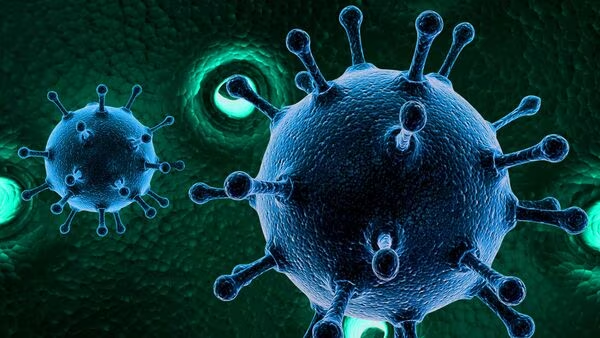
New Covid sub-variant JN.1 detected in Kerala raises concerns
text_fieldsA case of JN.1, a sub-variant of COVID-19, has been detected from the sample of a 79-year-old woman in Kerala, official sources said on Saturday.
The variant is currently spreading in the US and China and was found in Kerala during the ongoing routine surveillance by INSACOG (Indian SARS-CoV-2 Genomics Consortium).
The elderly woman’s sample had returned a positive result in an RT-PCR test taken on November 18 and she had mild symptoms of influenza-like illnesses (ILI). She had recovered from COVID-19.
Earlier, an Indian traveller was also detected with JN.1 sub-variant in Singapore. The person was a native of Tamil Nadu’s Tiruchirapalli district and had travelled to Singapore on October 25.
No increase in cases was observed in Tiruchirapalli district or other places in Tamil Nadu following the strain being detected in them. “No other case of JN.1 variant has been detected in India,” the source said.
 Also Read - Chemicals found in shampoo, makeup can impair fertility, says study
Also Read - Chemicals found in shampoo, makeup can impair fertility, says study
The sub-variant, which was first identified in Luxembourg, is a descendant of the Pirola variant (BA.2.86). It contains a significant number of unique mutations, particularly in the spike protein, that may contribute to increased infectivity and immune evasion, a source explained.
However, initial data suggests that updated vaccines and treatments will still offer protection against JN.1 sub-strain, the source stated.
The Union Health Ministry is coordinating with state health authorities and monitoring entry points. As part of routine exercises, a mock drill is being conducted at health facilities nationwide through district collectors to evaluate public health and hospital preparedness measures.
The drive will be completed by December 18. In recent weeks, there has been a rising pattern of COVID-19 cases from Kerala. This surge has been attributed to an increase in the testing of samples from ILI cases being referred for testing.
The majority of these cases exhibit mild clinical symptoms and are recovering on their own at their homes.
While global COVID-19 cases have generally stayed low this year, a slight uptick was observed in early December, as per the dashboard maintained by the World Health Organization (WHO).
The emergence of the JN.1 variant in various countries before the holidays, particularly, the increase in the US, China, and Singapore, has sparked concerns about a potential surge. The sub-variant is not entirely new and has been detected in small numbers across several countries for several months.
 Also Read - In world’s first case, man tears his windpipe after holding in sneeze
Also Read - In world’s first case, man tears his windpipe after holding in sneeze
The sub-variant JN.1 is a close relative of the BA.2.86 variant, commonly referred to as Pirola. It carries just one additional mutation in the spike protein as compared to its relative.
Pirola was on the watchlist of scientists as a “variant of interest” because of more than 39 mutations it carried on the spike protein as compared to its predecessor. Mutations on the spike protein of Sars-CoV-2 are important because they are the ones that attach to receptors on human cells and allow the virus to enter it.
The US Centre for Disease Control and Prevention (CDC) says that the updated vaccines available in the country have demonstrated the ability to effectively block Pirola infections and should, therefore, protect against JN.1 as well, reports Indian Express.
Experts say that immunity from previous infections and immunisation with vaccines containing ancestral spike protein are likely to protect against newer variants as well.
In fact, an assessment by the WHO Technical Advisory Group on COVID-19 vaccine composition showed that both Pirola and JN.1 were effectively neutralised by serum from humans who had the infection and vaccination but not with the serum of animals who had just had the vaccine but not the natural infection.
This could be because of a cumulative effect of immunity through infection and vaccination in humans, the WHO assessment said.
Experts say that protecting against a respiratory virus remains the same. Masking up in crowded areas, especially enclosed ones and remaining in well-ventilated spaces reduces the spread of the infection. Washing hands frequently and maintaining social distancing will also prevent infection.
With PTI inputs
























